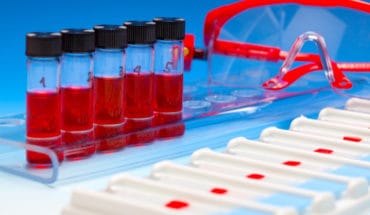Stem cell transplant recipients are left feeling like they have “fallen off a cliff”, according to research by charity Anthony Nolan which reveals that one in five are not offered any specialist NHS support during their long-term recovery.
Despite transplant patients often being known as “patients for life” due to the long-term side-effects of the treatment, many patients are not receiving adequate support for the physical, practical and psychological challenges they experience.
Anthony Nolan is calling on health commissioners to urgently review the care arrangements they have in place for transplant recipients once they leave hospital, to ensure that patients and their families can continue to access vital support and services.
Anthony Nolan is calling on health commissioners to urgently review the care arrangements they have in place for transplant recipients once they leave hospital, to ensure that patients and their families can continue to access vital support and services.
More than 2,000 people a year in the UK need a stem cell transplant to treat their blood cancer or blood disorder. Currently, national commissioners pay for any treatment needed by patients for the first 100 days after transplant. After this point, responsibility for funding services passes to local commissioners — in England, the patients’ local Clinical Commissioning Group (CCG). However, a Freedom of Information request by Anthony Nolan found that at present, fewer than one in ten (9%) CCGs have specific arrangements in place. Worryingly, more than a third (36%) of CCGs were unaware that the responsibility for patient services after the first 100 days lay with them.
As a result, patients face long delays for services including access to counsellors, physiotherapists and gynaecologists, with one in five patients not offered any specialist support at all.
A survey from Anthony Nolan found that where patients are offered practical support such as help at home or getting back to work, 97% find it beneficial. However, of those who needed practical support, only 50% were offered it.
Similarly, nearly half (47%) of respondents said that they felt they needed emotional and psychological services such as counselling and group therapy, but of those who said they needed it, only half (54%) actually received it.
This increases the burden on patients and their families, and can negatively affect their mental health, finances, and physical recovery.
- New lipid-based pathway discovered as key to memory formation - 25th June 2025
- Crucial link could explain how Alzheimer’s takes hold - 25th June 2025
- Understanding Your Mind Can Improve Daily Life - 25th June 2025







